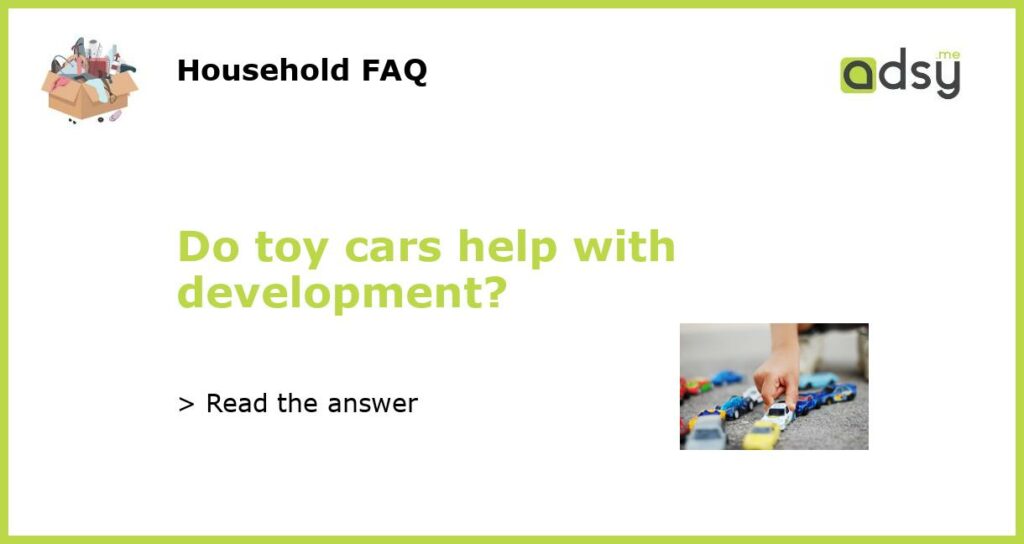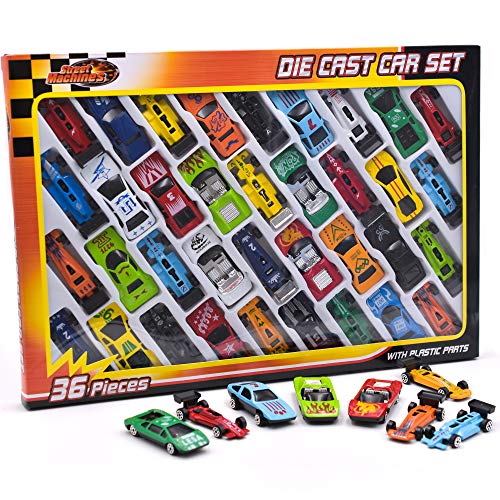Introduction
Toy cars have been a staple in the playrooms of countless children around the world for decades. They provide endless entertainment and excitement, allowing children to engage in imaginative play and create their own miniature worlds. But do toy cars have any educational or developmental benefits? In this article, we will explore whether toy cars actually help with development.
The Benefits of Pretend Play
Pretend play, also known as imaginative play or make-believe play, is a crucial aspect of a child’s development. It allows children to explore their imagination, develop problem-solving skills, and practice social interactions. Toy cars play a significant role in pretend play, as they can become a vehicle (pun intended) for children to create scenarios and stories in their play.
Children can pretend to be a racecar driver, a police officer chasing a bad guy, or even a mechanic fixing a broken-down car. Through these imaginative scenarios, children can enhance their creativity, develop language and communication skills, and learn about various roles and responsibilities in the real world.
Motor Skills and Coordination
Playing with toy cars also helps children develop their motor skills and coordination. As they push, pull, and manipulate the cars, children improve their fine motor skills, including hand-eye coordination and finger dexterity. These skills are essential for everyday tasks such as writing, using utensils, and tying shoelaces.
In addition, playing with toy cars can improve gross motor skills as children engage in physical activities such as pushing the cars across the floor, setting up ramps, or racing with their friends. These movements promote balance, strength, and overall physical development.
Cognitive Development
Toy cars can also contribute to a child’s cognitive development. When children engage in play with toy cars, they are exposed to various cognitive concepts such as cause and effect, spatial awareness, and problem-solving. For example, children learn that pushing a toy car harder will make it go faster or that placing a ramp at a certain angle will determine how far the car will jump.
Moreover, toy cars can assist in the development of mathematical skills. Children can count the number of toy cars they have, sort them by color or size, and even create patterns or sequences with the cars. These activities help children develop their numeracy skills and understand basic mathematical concepts.
Social and Emotional Development
Playing with toy cars can also support a child’s social and emotional development. Toy cars can be used as a tool for cooperative play, encouraging children to share, take turns, and solve conflicts together. Racing or building tracks with friends can enhance social interaction and teamwork skills.
Furthermore, playing with toy cars can provide an avenue for emotional expression. Children might incorporate their emotions into their play, acting out scenarios that reflect how they feel or using the cars as a way to express themselves. This can be particularly beneficial for children who have difficulty verbalizing their emotions.
Toy cars have proven to be more than just a source of entertainment for children. They offer various educational and developmental benefits, including enhancing imaginative play, improving motor skills and coordination, promoting cognitive development, and supporting social and emotional growth.
So the next time you see a child zooming a toy car across the floor, know that they are not just having fun – they are also learning and growing through play.






